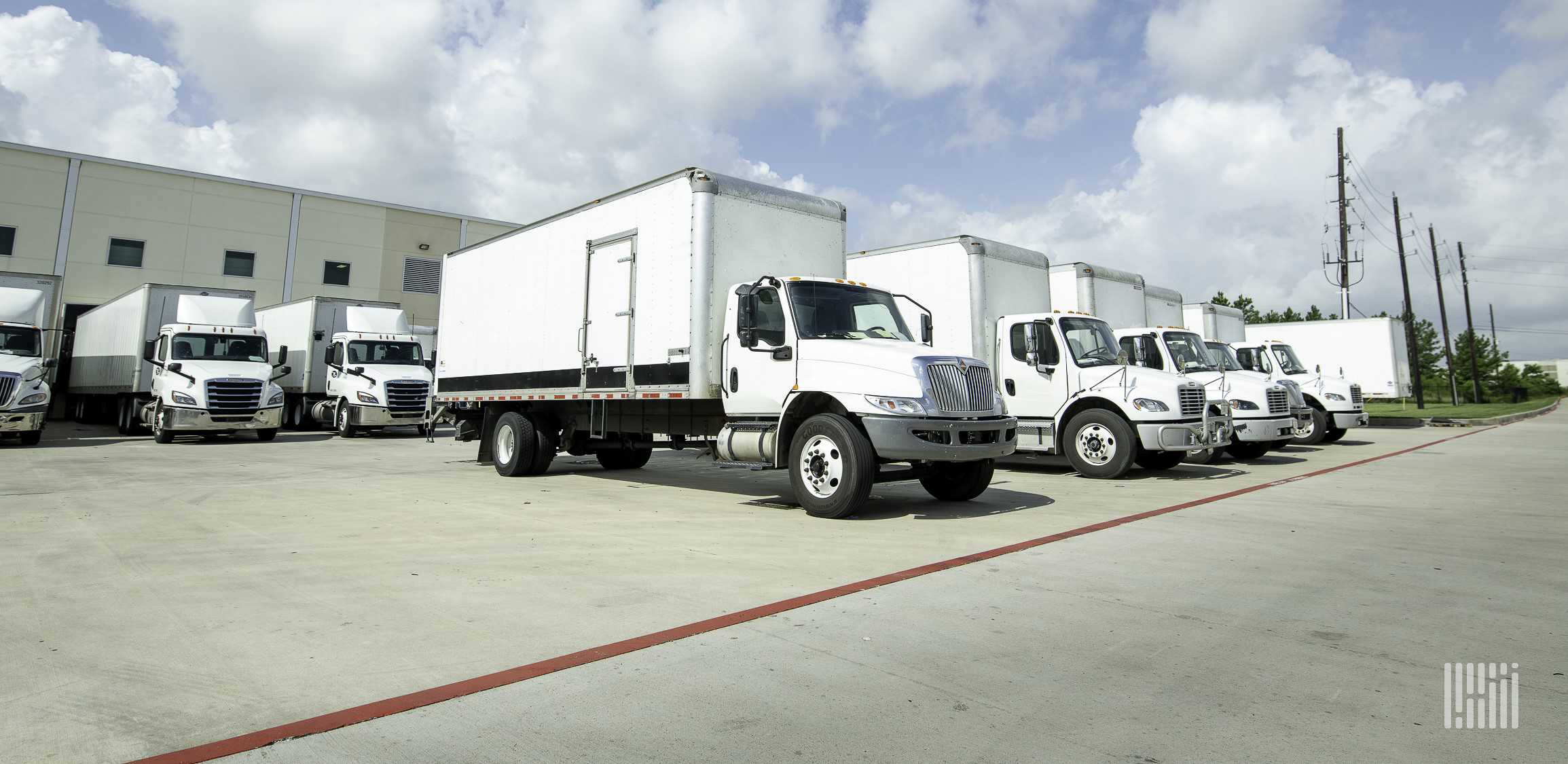Starting a new career as a driver for a trucking company can be both an exciting and overwhelming experience.
As a new driver, it’s essential to understand what to expect, what companies look for in inexperienced drivers, and the pros and cons of being a company driver compared to an owner-operator.
In this comprehensive guide, we will provide insights into the definition and role of a company driver, the qualifications and skills required by companies, and tips for success as a new company driver.
Whether you are a prospective truck driver or a current driver considering transitioning to a company role, read on to learn what you need to know as a new company driver. And when you’re finished, check out the other articles in our ‘Insights and tips for new drivers’ series:
- What to expect as a new trucking company driver
- How to choose the best trucking company for new drivers
- Flatbed trucking insights for new drivers
- Pros and cons of OTR trucking jobs for new drivers
What is a company driver?
A company truck driver is a professional driver who is employed by a company to transport goods from one location to another. This is typically accomplished using a commercial vehicle, typically a large truck or tractor-trailer.
These drivers are responsible for:
- Driving the truck safely and efficiently
- Maintaining the integrity of the cargo
- Adhering to company policies and governmental regulations
- Ensuring timely delivery of products
Unlike owner-operators, company drivers don’t own the trucks they drive; instead, the vehicles are owned and maintained by the employer.
Company drivers play a critical role in the success of the trucking companies they work for. By delivering goods and services on time and in good condition, they contribute to customer satisfaction and their employers’ positive reputations.
What do companies look for in inexperienced drivers?
Companies that hire new truck drivers without experience look for candidates meeting certain criteria. You should possess the following to have a good chance of being hired:
- A driver’s license: This is the most basic requirement for any driver. Employers expect drivers to have a valid license and good driving record.
- In most circumstances, a commercial driver’s license (CDL): For drivers who operate heavy vehicles such as trucks, a CDL is required. This license demonstrates that the driver has received training and passed the examination to operate large vehicles safely on the road.
- Dependability and reliability: Drivers must be punctual and responsible. Employers look for drivers who have a track record of showing up on time, being reliable, and adhering to a schedule.
- Good communication skills: Professional truck drivers need to communicate with dispatchers, other drivers, and customers regularly for a trucking career. Being able to communicate effectively is essential to ensure that deliveries and pickups run smoothly.
- Problem-solving skills: Drivers need to think quickly on their feet and come up with solutions to problems like traffic congestion, delivery delays, or vehicle breakdowns.
- Physical fitness: Depending on the type of driving job, drivers may need to climb in and out of trucks, lift and move heavy packages, and stand for extended periods while loading and unloading their vehicles.
- Knowledge of vehicle maintenance: Drivers need to understand basic vehicle maintenance such as checking fluid levels, inspecting tires, and understanding warning lights.
- A positive attitude: Drivers need to be friendly and presentable, as they interact with customers and represent the company on the road.
- Familiarity with local roads: Employers prefer drivers who are familiar with the local roads, road regulations, and traffic patterns. This knowledge can help drivers plan better routes and reach their destinations on time.
Pros and cons of being a company driver versus an owner-operator
Being a company driver has advantages and disadvantages over being an owner-operator. Here are some of them:
Pros
- Stability: Company drivers often have a stable, regular income and don’t have to worry about the variability of the freight market.
- Lower costs: The company typically covers expenses such as fuel, maintenance, repairs, and insurance.
- Fewer responsibilities: Company drivers don’t have to manage business aspects like accounting, taxes, and finding loads to haul.
Cons
- Less control: Company drivers have less say over the loads they haul and their schedule.
- Potential for lower income: While they have stable pay, company drivers may earn less overall compared to successful owner-operators.
- Less independence: They are subject to company policies and may have less flexibility in their work.
10 tips for new company drivers
There are many ways for new truck drivers to stay on top of the game, such as staying organized, maintaining a good attitude, and seeking out mentorship from more experienced drivers.
Here are some tips:
- Familiarize yourself with the company policies, regulations, and truck driving information, as well as the rules of the road. Follow them strictly to ensure safety and efficiency on the road.
- Plan your route ahead of time to avoid delays and traffic congestion. Use navigation tools when driving a semitruck for the first time to find the quickest and most direct routes.
- Take the time to inspect your vehicle before every trip to ensure it is in good condition and free of mechanical issues.
- Practice safe driving habits, such as maintaining a safe following distance and using turn signals when necessary.
- Communicate effectively with dispatchers and managers to keep them informed of your progress and any issues you encounter. This is important for new CDL drivers.
- Stay organized in your life as a trucker by keeping accurate records of your mileage, fuel consumption, and expenses.
- Focus on customer service by being friendly, professional, and responsive to their needs and concerns.
- Maintain a healthy work-life balance by managing time efficiently and taking breaks when necessary for a balanced truck driving life. Avoid overworking and fatigue.
- Stay up-to-date on industry trends and technology to keep your skills and knowledge current. This is not just for truck driving for beginners. Seek out mentorship from drivers with more truck driving experience can help.
- Keep a positive attitude toward your new truck driver job and colleagues. Stay motivated and optimistic, even during challenging times.
Consider a rewarding new career as a company truck driver
Now you know what to expect as a new trucking company driver, and understand all the advantages of company truck driving jobs. For instance, there’s steady demand in the logistics sector, providing job stability and good earning potential. And many trucking companies actually offer paid training, allowing you to learn while earning.
The role can also provide a sense of independence and the opportunity to travel, seeing different parts of the country. You may also enjoy competitive benefits packages from some employers, including health insurance and retirement plans. If you’re considering making a career change, there are many compelling reasons to explore a company truck driving career.
FAQ
There are many top truck driving companies such as Walmart, FedEx, UPS, and Schneider National that offer competitive salaries and benefits packages for their company drivers, even inexperienced CDL jobs. Trucking companies that hire inexperienced drivers may have varied pay and benefits based on factors such as location, experience, and skills.
The value of being a truck driver can largely depend on individual circumstances and preferences. It can be rewarding for those who enjoy traveling, working independently, and have a high tolerance for long hours alone, plus it often provides a solid income. However, it can also be challenging due to factors like irregular hours, time away from home, and the physical and mental stress associated with long-distance driving.
Being a company driver typically means that you are an employee of a company and your primary job is to operate a commercial vehicle (such as a truck or delivery van) on behalf of the company. As a company driver, you are responsible for following the company’s policies and procedures, maintaining the vehicle, and ensuring timely and safe delivery of goods or passengers. Company truck driver life includes a set hourly wage or salary, and benefits such as health insurance, retirement plans, and paid time off.



